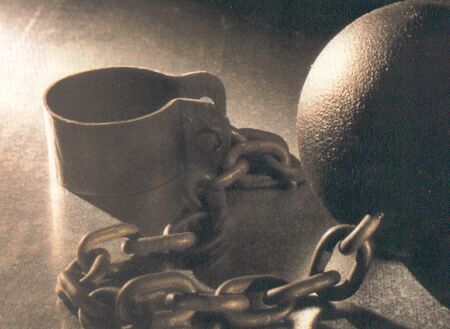The nature of our fallen nature is that it will be less clear to ourselves than to anyone else. J.C. Ryle puts it into perspective here…
‘Concerning the guilt, vileness and offensiveness of sin in the sight of God, my words will be few. I say “few” advisedly. I do not think, in the nature of things, that mortal man can at all realize the exceeding sinfulness of sin in the sight of that holy and perfect One with whom we have to do. On the one hand, God is that eternal Being who “charges His angels with folly” and in whose sight the very “heavens are not clean.” He is One who reads thoughts and motives as well as actions and requires “truth in the inward parts” (Job 4:18; 15:15; Ps. 51:6). We, on the other hand—poor blind creatures, here today and gone tomorrow, born in sin, surrounded by sinners, living in a constant atmosphere of weakness, infirmity and imperfection—can form none but the most inadequate conceptions of the hideousness of evil. We have no line to fathom it and no measure by which to gauge it. The blind man can see no difference between a masterpiece of Titian or Raphael and the queen’s head on a village signboard. The deaf man cannot distinguish between a penny whistle and a cathedral organ. The very animals whose smell is most offensive to us have no idea that they are offensive and are not offensive to one another. Fallen men and women, I believe, can have no just idea what a vile thing sin is in the sight of that God whose handiwork is absolutely perfect—perfect whether we look through telescope or microscope; perfect in the formation of a mighty planet like Jupiter, with his satellites, keeping time to a second as he rolls round the sun; perfect in the formation of the smallest insect that crawls over a foot of ground. But let us nevertheless settle it firmly in our minds that sin is “the abominable thing that God hates”; that God “is of purer eyes than to behold iniquity, and cannot look upon that which is evil”; that the least transgression of God’s law makes us “guilty of all”; that “the soul that sins shall die”; that “the wages of sin is death”; that God will “judge the secrets of men”; that there is a worm that never dies and a fire that is not quenched; that “the wicked shall be turned into hell” and “shall go away into everlasting punishment”; and that “nothing that defiles shall in any wise enter” heaven (Jer. 44:4; Hab. 1:13; James 2:10; Ezek. 18:4; Rom. 6:23; Rom. 2:16; Mark 9:44; Ps. 9:17; Matt. 25:46; Rev. 21:27). These are indeed tremendous words, when we consider that they are written in the book of a most merciful God!‘
J.C. Ryle, Holiness, 7.
